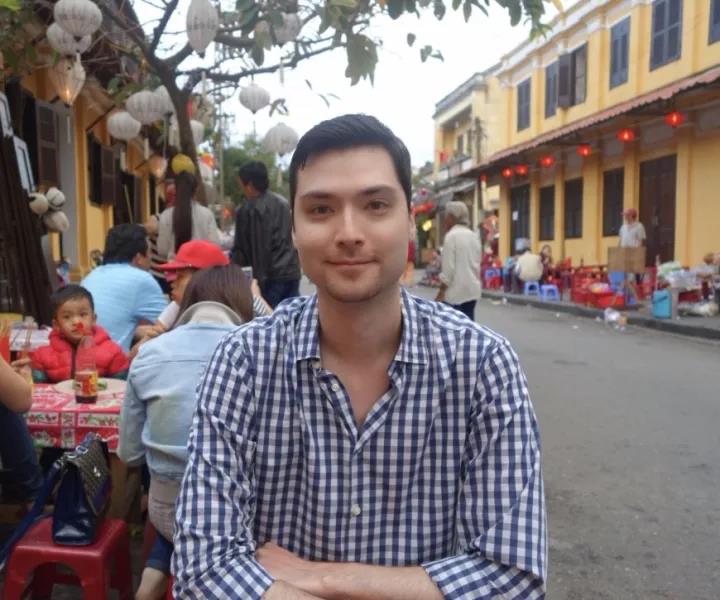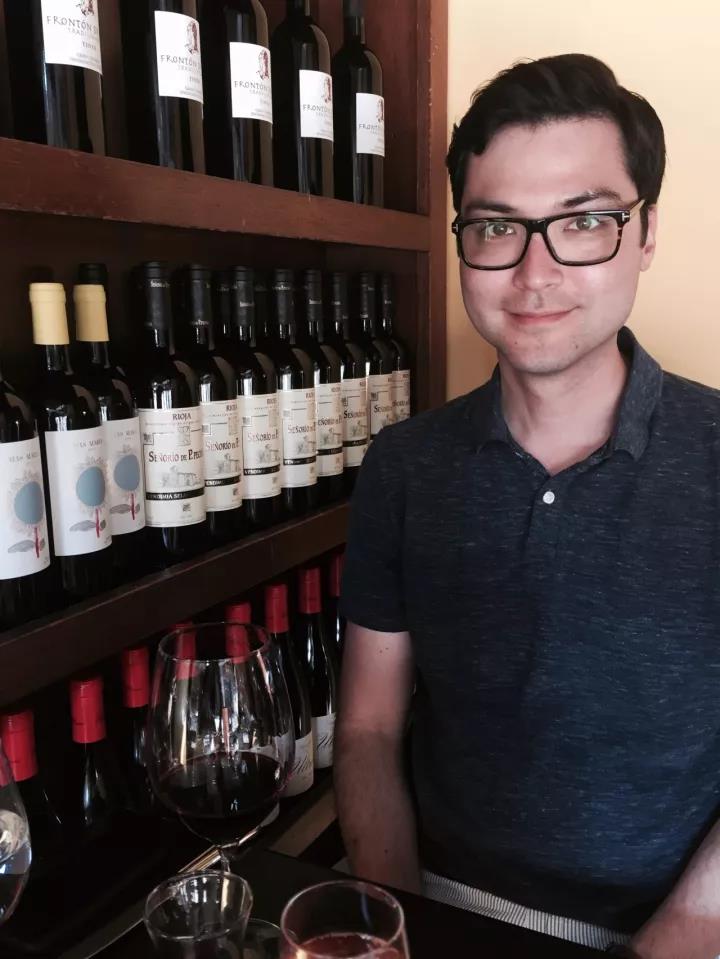从投资银行到纽约初创公司
从纽约到上海再到纽约,从投资银行到汽车行业到加入业内领先的创业公司,MBA2014届校友Eric Powlick成功通过中欧实现了自己人生的转型。在毕业三年之际,回顾自己的中欧生涯,Eric 有什么独家心得要和大家分享?

转行+跨地区,中欧助我一臂之力
我现在在纽约一家初创公司Blue Apron的财务规划及分析部门担任高级经理。我和运营团队一起为运营成本制定财务计划,并为公司在产能和自动化方面的投资决策提供支持。作为初创公司的一员,我的工作更专注于战略层面,而不是传统的公司财务分析。通过财务分析,我们可以为公司的关键决策提供指导。目前,Blue Apron已经成为美国最大的线上生鲜供应商。
在求职的过程中,我在中国的工作经验获得了一致认可。公司非常欣赏我在中国获得的管理经验并肯定了我应对高速增长的环境的能力。同时,正是因为我在中国的独特经历,让我在与其他求职者的竞争中脱颖而出。因为我接触的大多数公司都在中国有业务运营,或者有供应链,所以我们可以非常容易地就如何在中国做生意进行沟通。
在加入Blue Apron之前,我在美国福特汽车公司亚太地区总部产品开发部担任财务经理。2016年,还作为嘉宾参加了一年一度的中欧Pre-MBA 夏季训练营,为未来的中欧MBA申请人介绍了美国汽车巨头福特,同时为MBA毕业生提供职业发展机会。
从投资银行转到汽车行业又转到创业公司,我的体会是:一定要在不同行业中利用“可转换技能”,也就是那些共通的技能。比如在财务方面,营业额和成本等概念在不同的行业都是相通的。当在争取一个全新的职业机会的时候,我会强调我已经具有的分析能力、领导能力以及合作能力。虽然需要通过实践才能培养出在一个新的行业中使用这些技能的能力,但是只要你提前做好准备,一切都会迎刃而解。而如果你已经了解了你想进入的行业,并且能用这个行业内的“行话”进行交流,那就证明你对那个行业是真正有兴趣的以及你在新行业里快速提高自己的能力。
中欧体验,从课堂到城市
我依然记得开学第一周时市场营销学教授Lydia Price博士讲授的入门课程。她强调要通过不断地提问来深入了解顾客。我还非常喜欢经济学教授Bala Ramasamy博士的经济学课程。他告诉我们,要勇于向规则提出疑问,不要墨守成规。在MBA毕业之后,我一直努力在实际工作中运用这些理论。
除了上课和小组讨论之外,我在学校的业余时间主要用来打篮球。篮球在中国很受欢迎,因此大家打篮球的水平都很高。而在打篮球的时候,我也结识了很多同学,和他们聊天非常有趣。

我和我太太在上海有将近五年的美好回忆,我们都非常想念上海。当时我没有住在学校里面,每天从静安区做地铁2号线去中欧上下学。在高峰时段,地铁2号线是全市最繁忙的线路之一,那段经历很有趣。此外,我们非常想念便捷的微信,地道的小笼包店,精彩的夜生活,从浦东望过去的外滩风情,以及骑车在美丽的法租界穿行。更重要的是,我想念我的朋友们、同事们以及同学们,他们永远都在上海那段美好的记忆里。
独家心得分享
你对想到海外特别是到中国攻读MBA学位的美国人有什么建议?
中国会继续成长为重要的消费市场和未来的创新中心。在中国学习和工作将会给你带来很大的优势。你可以在当地建立起自己的人脉网络并且获得很多深入的见解。因此,如果你在将来想从事跟中国有关的工作,中欧的MBA项目是一个非常棒的机会。只要付出努力,中欧MBA一定会在你转变的过程中助你一臂之力并且帮你获得更多的机会。
在读中欧MBA之前,有中文基础是一个优势。虽然这取决于时间管理和语言能力,但是提前学习中文的好处会在MBA课程开始后展现出来。因为中欧MBA项目前两个学期的课程安排非常紧张,所以供你学习中文的时间会非常有限。而即使你只会简单的中文对话,也能从中受益许多,获得更多的机会。所以,绝对要花时间好好学习中文!
Investment Banking to a NY startup, via Shanghai
——CEIBS MBA 2014 alumnus Eric Powlick shares how his China experience was perceived back home in New York
MBA Admissions last caught up with MBA 2014 alumnus Eric Powlick at Ford Motor Company’s Asia Pacific Headquarters in Shanghai as part of CEIBS annual Pre-MBA Summer Boot Camp in 2016 that provided future MBA students with a look behind the scenes at graduate opportunities at the US automotive giant. At that time, Eric was Finance Manager within Ford’s product development department, but has since returned to his native New York. Eric took the time to sit down with CEIBS MBA Admissions to reflect on his MBA journey.

What is your current job?
I work at Blue Apron, the largest provider of meal kits in the U.S., as a Senior Manager in the Financial Planning & Analysis team. I partner with the Operations and Fulfilment teams to set financial plans for operating costs and support capital investment decisions in capacity and automation. Given the company's current phase, my job is much more strategic compared to a typical FP&A role. We are the thought partners for the business and provide direction driven by financial analytics to support critical decisions.
How did employers react to your experience of working in China when you were applying for jobs back in New York?
My working experience in China was very well received. Employers liked the fact I had managed teams in China and understood how to perform in a high growth environment. International experience itself is viewed very highly, but experience in China is even more so. Most businesses I spoke with had operations or supply chains based in China, so our conversations were very relevant to how business is done in China.
Having moved from investment banking to automotive and now an online startup, what advise do you have for MBAs seeking an industry switch?
I've been able to leverage my transferrable skills that apply across all industries. Being in finance, revenue is still revenue and costs are still costs no matter what industry you're trying to break into. I've always emphasized my analytical, leadership and collaborative abilities when embarking on a new career opportunity. The ability to apply those same skills to a new industry will take practice, but if you do your homework, you can get there. Being current on the industry you want to break into and 'speaking the language' will indicate your strong interest level and show that you can ramp up quickly.
Which takeaway from an MBA faculty member still informs your work today?
I still remember during the orientation session when Professor of Marketing Dr. Lydia Price gave her introduction lecture. The point she made was to never stop asking questions to get a deeper understanding of the customer. I also enjoyed Professor of Economics Dr. Bala Ramasamy’s lectures on Economics. He said that we should always question the norm and not accept things as they are. I try to use these behaviours in my work today.
What advice do you have for Americans looking to study an MBA overseas, particularly in China?
My advice is pretty simple. China will continue to grow in importance as a consumer market and a hub for future innovation. Learning and working in China will give you a big advantage over your peers. Being on the ground, you'll be able to build important local relationships and gain lots of insights. So if you’re considering a career that’s in some way connected to China, the CEIBS MBA is a great bridge that will ease the transition and set you up with opportunities if you put in the effort.
Have valuable was your prior experience studying Chinese before enrolling at CEIBS?
Having a foundational level of Chinese prior to starting the MBA provides an advantage. It depends on your time management and language abilities, but getting a head start on your Chinese will pay off as you begin the MBA. The programme is intense in the first 2 terms, which means you’ll have less time to improve your Chinese. Even having a very basic conversational level of Chinese will serve you well and open up doors, so it’s worth the time to invest in it.
What is your fondest memory of campus life?
I didn’t live on campus as I commuted from Jing’an district via the metro Line 2. During rush hour, Line 2 is one of the busiest in the city, so it was an interesting experience. The time I did spend on campus outside of lectures and group projects was usually at the gym playing basketball. Basketball is really popular in China, so the level of play was pretty good. I had a lot of fun getting to know my classmates during our pick-up games, with the occasional trash talk mixed in.
What do you miss most about from Shanghai?
My wife and I miss Shanghai a lot. We have so many great memories from nearly five years there. There are a lot of things I personally miss about Shanghai: the convenience of WeChat, the local xiaolongbao shop, the nightlife, Pudong views from The Bund and biking in the FFC. Most of all, I miss the friends, colleagues and classmates that I had the pleasure to know and are forever connected to my time there.




















